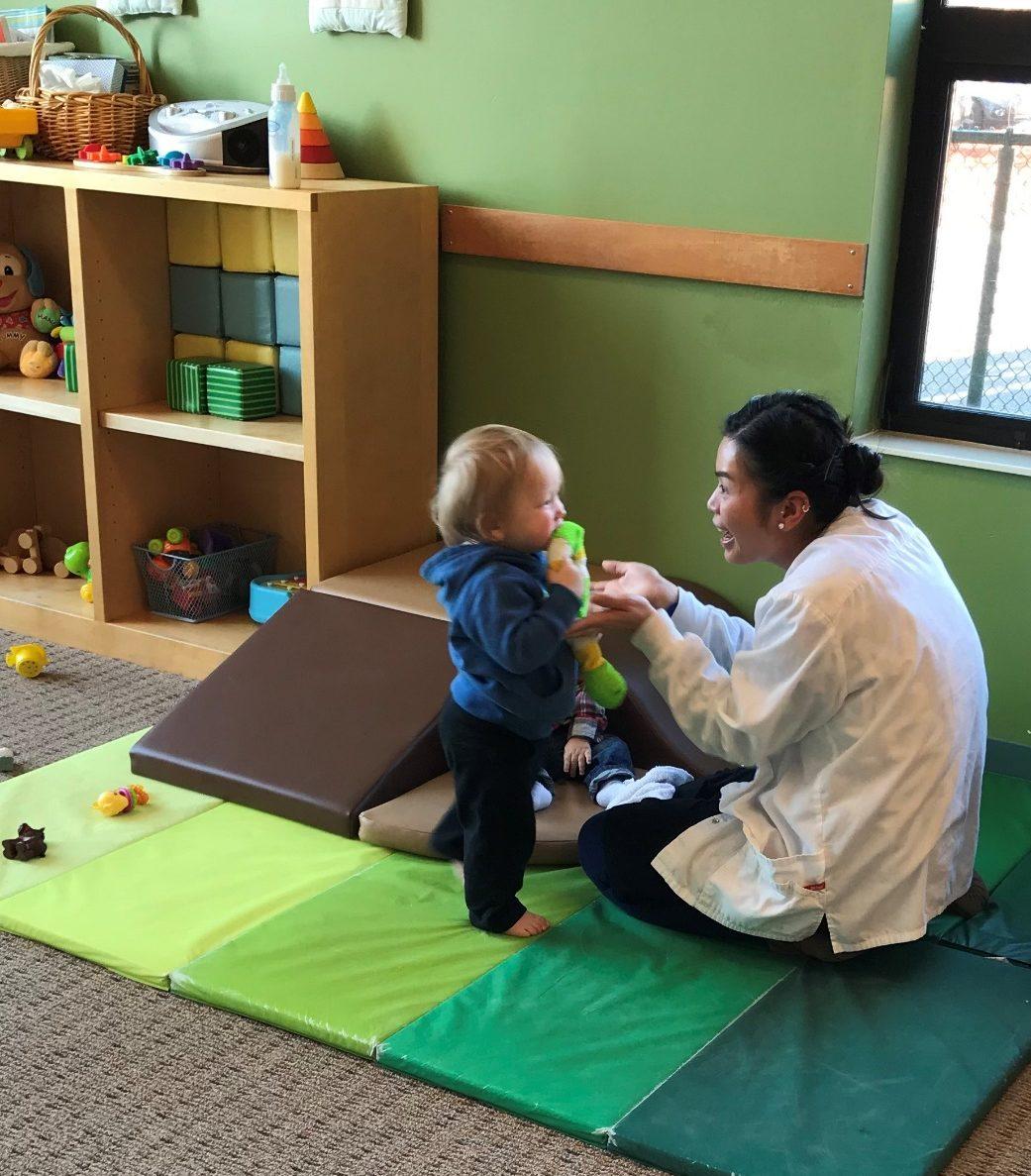 As a parent, you want your child to receive the best possible education. However, this admirable goal involves numerous individual choices. For example, while you may know that your child will benefit from Montessori-style learning, you may wonder if he or she should stay at the same center from infancy on.
As a parent, you want your child to receive the best possible education. However, this admirable goal involves numerous individual choices. For example, while you may know that your child will benefit from Montessori-style learning, you may wonder if he or she should stay at the same center from infancy on.
Many Montessori learning centers offer infant early learning programs, toddler curriculum, preschool and kindergarten. In this blog, we discuss five ways that your child may benefit from staying at the same learning center for each of these educational stages.
- Intuitive Teaching
If you are considering a Montessori approach for your child, you likely know that one of the common issues with traditional education is the lack of rapport between instructors and individual students. This lack of shared history puts teachers at a disadvantage as they try to meet each child’s needs.
When your child stays at the same Montessori learning center over time, not only does your child get to know his or her teachers, but the teachers become better equipped to serve your child. This experience gives teachers more intuition when providing support and guidance to your child.
In addition to the learning advantages offered when teachers know their students, this relationship has practical advantages. For example, if an instructor has known your four-year-old since infancy, the teacher knows your child’s allergies, learning style and strengths and weaknesses in specific situations.
Intuitive teaching of this kind can be particularly important for sensitive, shy and special needs children who may struggle to express their needs to teachers they don’t already know care about them as a person.
- Lasting Relationships
In addition to developing relationships with teachers, attendance at the same school over time cultivates lasting friendships and a strong peer network. Socially, these friendships give your child relationships built on fun and mutual interests that could potentially last well after kindergarten.
Developmentally, long-term childhood friendships can teach your child to distinguish between different types of relationships, learn to consider the needs of others and understand how interactions change as people do.
In addition to your child’s close friends, the students that he or she interacts with as classmates can give your child the developmental tools to see his or herself as part of a larger group.
- Lesson Reinforcement
As a general rule, Montessori classrooms approach advanced concepts well before traditional classrooms. While, in theory, your child could continue with this progression at any qualified Montessori center, sticking with the same learning center allows for stronger lesson reinforcement.
Just like a move in the middle of a school year could mean that a traditional student must relearn a concept or work to catch up with their class, changing Montessori programs could put your child at a disadvantage.
However, many Montessori programs focus on cumulative learning experiences that solidify the lesson in each student’s mind. Your child will continue to build on the concepts introduced in early learning curriculum all the way through kindergarten.
- Natural Social Progression
One of the concepts that the Montessori approach challenges is that children should be segregated by age. Numerous studies report that children receive developmental benefits from experiencing both the bottom dog and top dog social status in school.
When a child switches schools, he or she unexpectedly goes from the current social status back to bottom dog status, regardless of age. This experience can be confusing and distracting, especially for children who have long anticipated joining the ranks of the five-year-olds at school.
The top dog experience can be particularly important at kindergarten age because children stay at a relatively low social status for the majority of elementary school.
The experience of being at the top of the social ladder at a preschool and kindergarten level can reinforce your child’s sense of self and self-worth, making the transition to elementary school less difficult.
Not only does your child benefit from progressing in a stable environment, he or she helps introduce younger students to this same, important social progression.
- Sense of Comfort
The transition to school can be difficult or even traumatic for some children. Minimizing this discomfort ensures that your child acclimatizes to the learning environment more quickly and stays receptive to the curriculum.
Once your child transitions into a Montessori learning center, the stressful process of helping him or her feel comfortable away from home is over.
When your child stays enrolled in the same center during the developmental years, not only does he or she maintain that sense of comfort at the current learning center, but your child may also have easier transitions into any future schools.
As you make important decisions about your child’s educational future, consider the advantages offered by staying with the same teachers, classroom environment, curriculum and peers during the critical developmental years.
Think your child could benefit from expert infant through kindergarten Montessori education? Enroll your child with Miniapple International Montessori School today.

